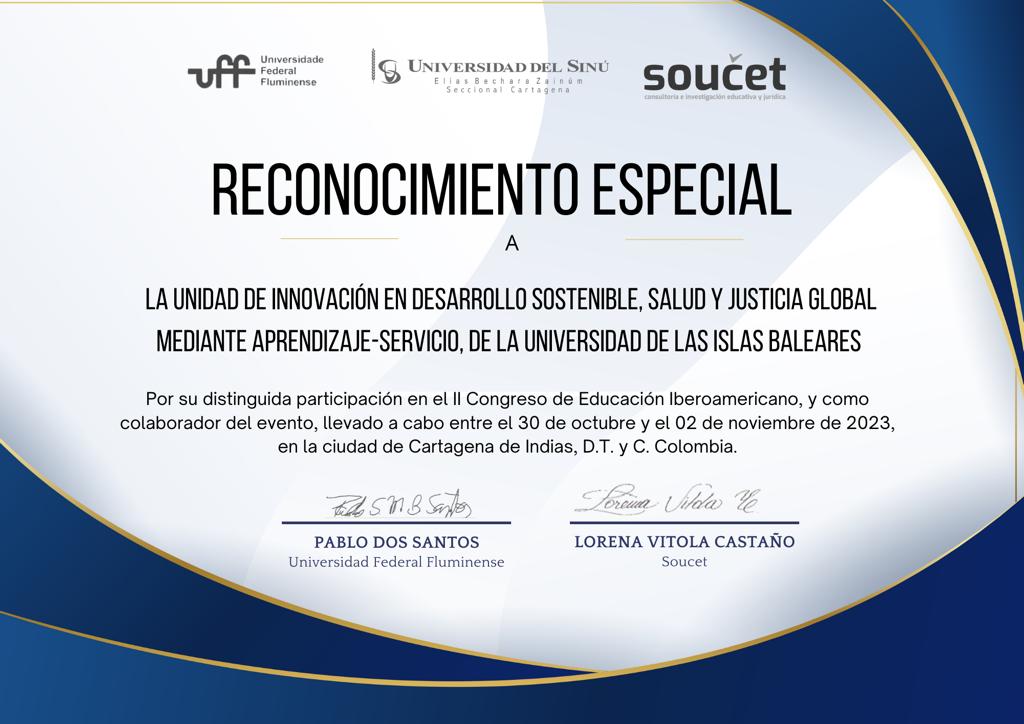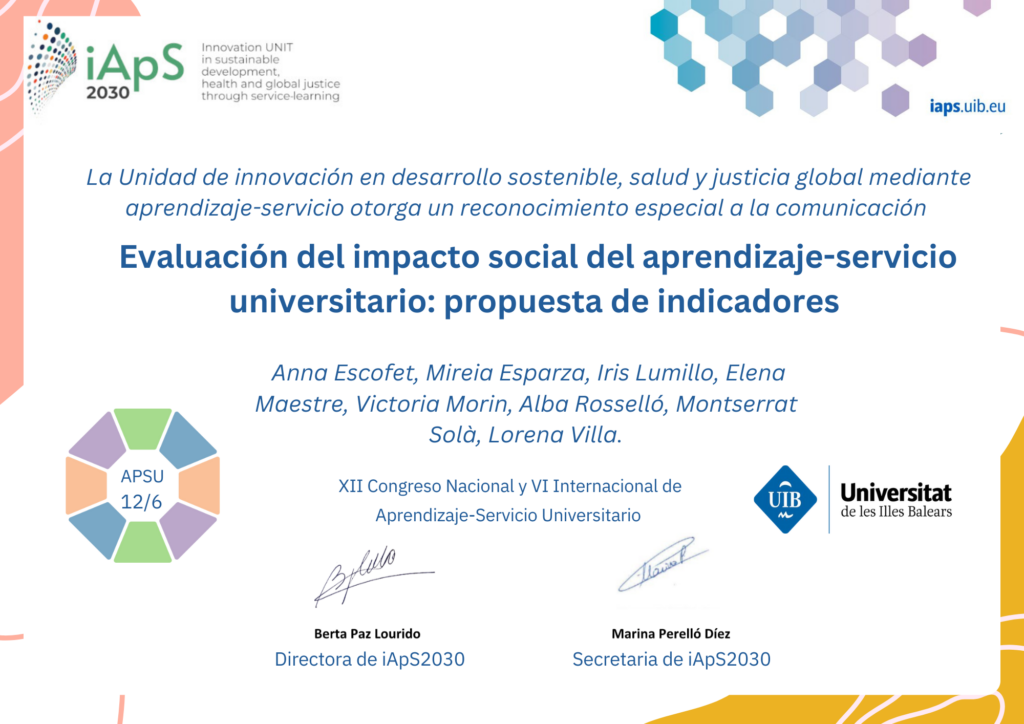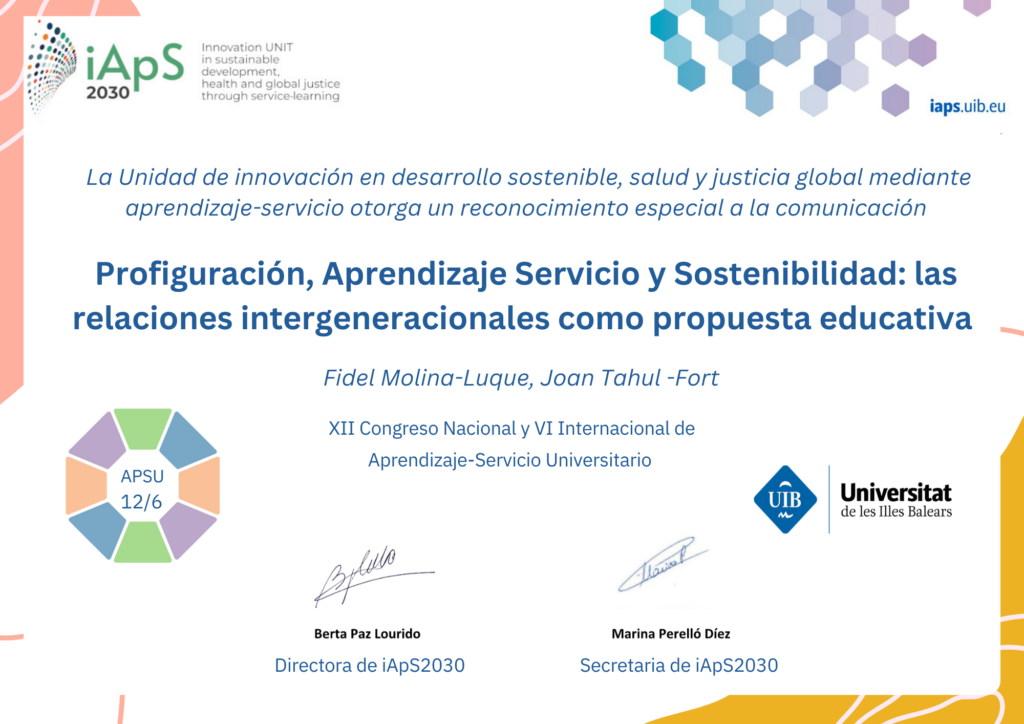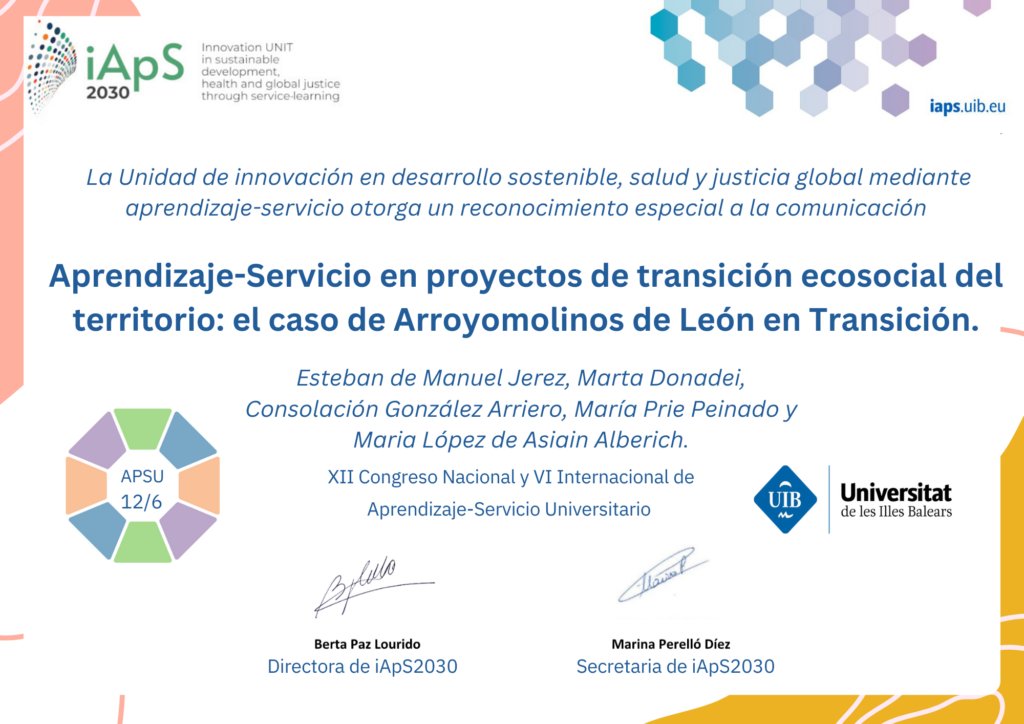Identity

Message from the Director
The current challenges of society require responsible and innovative strategies aimed at developing healthier, more inclusive and sustainable environments. The global sustainable development goals (SDGs) and the inner development goals (IDGs) allow two perspectives on these challenges, where innovation and transdisciplinarity are fundamental pillars. Universities have to play a key role as agents of change, promoting alternative and sustainable visions of the future, for which new ways of relating to the social, environmental, economic and cultural environment are necessary.
Sustainability is a transversal ethical principle that affects all areas of knowledge and is, at the same time, an intervention method that encourages human action to have the least possible negative impact and that is constructive for the environment. The sustainability framework determines the way to manage cultural, educational, social or economic exchanges, translating them into a critical and reflective process before decision-making, with a double local and global orientation. Incorporating the perspective of global justice allows us to analyze current problems in terms of equity in health, inclusion and respect for the environment, also including entrepreneurship models, forms of production, distribution and trade from eco-sustainable and social practices.
responsible.
Service-Learning is a pedagogical approach strongly anchored in ethical values that contribute to the personal development and training of people from all formal and non-formal educational levels inserted in the continuum of permanent education throughout life. Previous research, as well as the recommendations of scientific societies in the field of Service-Learning, point to its necessary application in social, labour and educational fields with criteria of excellence and quality, directing people to become active agents of their learning, leaders and protagonists of social change. This unit is constituted as a living laboratory that allows the development of innovative collaborative solutions appropriate to the real needs of society and the territory.

Objectives
Design interdisciplinary and transdisciplinary educational, training and social innovation solutions through Service-Learning, including protocols and products for quality assessment, accreditation, impact measurement and social return from a local-global approach.
Develop innovative proposals in terms of Service-Learning aimed at any level of formal and non-formal education in the surroundings of the Balearic Islands and other national and international regions in synergy with the third sector, public entities, the scientific fabric and the economy.
Advise on institutionalization processes through the transfer of high-quality and complex Service-Learning research results within the framework of the 2030 Agenda, human rights and innovative perspectives on sustainability.
What do we do?
Make innovative Service-Learning proposals applicable to different formal educational levels, non-formal training institutions, permanent education, and job training.
Apply the quality seal to certify the Service-Learning developed in different entities in person (QuApS) and for virtual or hybrid formats (e-QuApS).
Advise on strategic and tactical advocacy to properly develop Service-Learning in educational and non-educational entities.
Promote alliances, agreements and synergies with entities, networks, federations, associations, consortia and any other structure linked to the subject to develop joint projects or organize multilateral events.
Advise on carrying out projects adapted to the different sectors, disciplines and geographical or socio-cultural contexts.
Prepare guides for developing Service-Learning based on educational programs, especially, but not limited to, the fields of health, social inclusion, linguistic diversity, social entrepreneurship and environmental education.
Develop innovative Service-Learning proposals to promote the dissemination of science and technology.
Institutionalize the Balearic Service-Learning Observatory of the Balearic Islands.
Obtain regional, national and European R+D+I funds to invest in projects related to the interests of the unit.
Full Oficial 555
iApS2030 develops its tasks through the University-Business Foundation in the Balearic Islands.
iApS2030 functionally depends on the Vice Chancellor of Innovation and Digital Transformation of the University of the Balearic Islands.
The FOU 555 is the university regulation that includes Executive Agreement 14949 regarding the creation of the Innovation unit in sustainable development, health and global justice through service-learning (iApS2030), its objectives and tasks.
It is constituted as a living laboratory that allows the development of innovative collaborative solutions adapted to the real needs of educational institutions, society and the territory.
Steering Committee
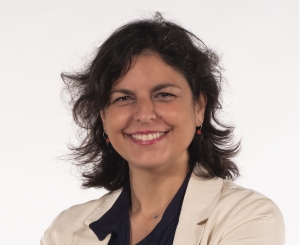
Berta Paz Lourido
Director
Berta is Associate Professor in Physiotherapy and teaches community physiotherapy, urban planning, environment and public health. She holds Bachelor’s degrees in Physiotherapy, Pedagogy and Audiovisual Communication. Her postgraduate education focused on areas such as bioethics, humanization and development cooperation. Her PhD in education was recognized with European Mention. She is a member of the Bioethics Committee in Primary Health Care. In the last years, Berta specialized in Service-Learning. Currently develops leadership roles at Service-Learning organizations at the European and Spanish levels, such as president of the Spanish Association and vice-president of the European Association of Service-Learning in Higher Education, among others.
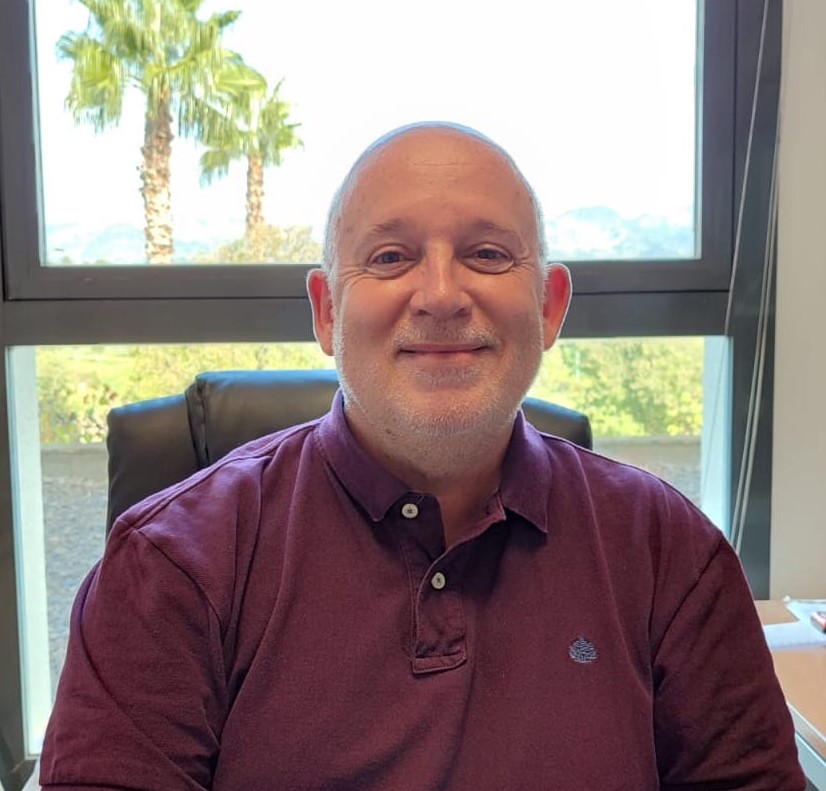
Guillem X. Pons Buades
Deputy Director
Guillem holds a PhD in Biology from the University of the Balearic Islands and is an Associate Professor in the Department of Geography (Physical Geography). His lines of research are related to the Management and Planning of Natural Spaces, current and historical biogeography, geomorphology and taxonomy of different zoological groups, invertebrate palaeontology and biospeleology. He has worked on international cooperation projects in Cuba and the Dominican Republic related to managing and conserving beach-dune systems and climate change. In Honduras, he has collaborated in planning the territory and natural spaces. He is linked to research groups on the history of science and the Interdisciplinary Laboratory on Climate Change. He is a member of the board of directors of the Natural History Society of the Balearic Islands and president of the Advisory Council of Fauna and Flora of the Balearic Islands.
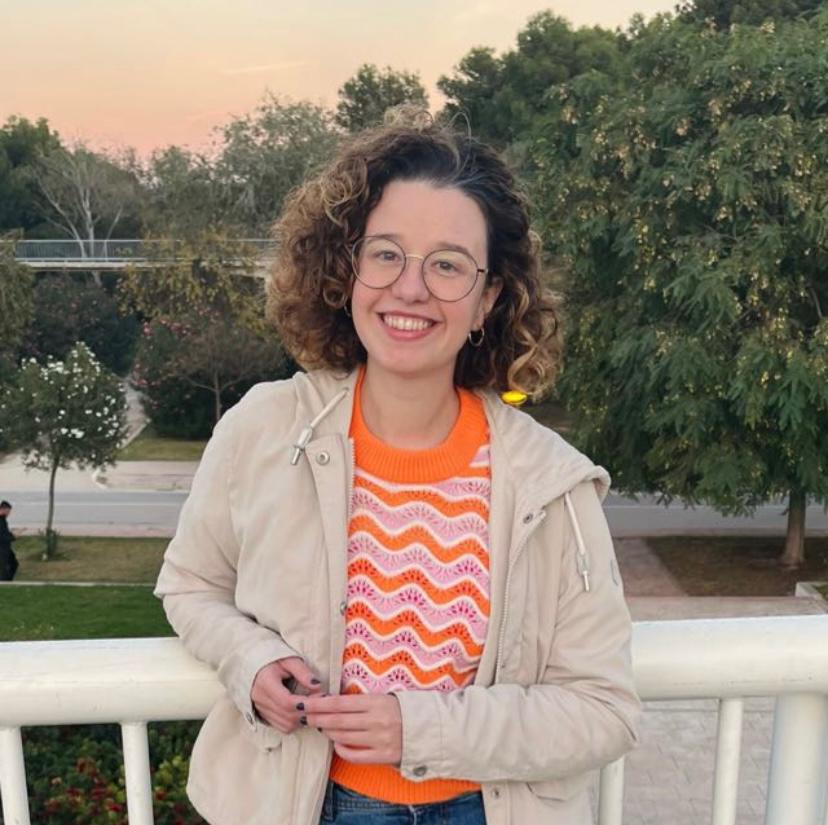
Marina Perelló Díez
Secretary
Marina is a part-time member of the Department of Nursing and Physiotherapy. She specialized in Early Childhood Care and Education. She works with families and children in an Early Care Centre in Mallorca. Marina has participated in several service-learning projects in higher education. She got a scholarship to work at the UIB Service-Learning program. She holds an MSc in Research in health sciences and quality of life. The Cooperation Development and Solidarity Office have awarded her trajectory with the Awards for Excellence in Social Commitment 2023. She is also a member of the Service-Learning group in the Balearic Islands.
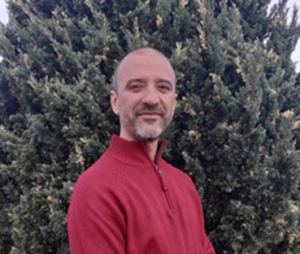
Álvaro Ribeiro
Project Developer
Alvaro holds a Master’s degree and a PhD in Sciences of Education, (School Organisation and Administration), from the University of Minho – Portugal. He holds education and training in Social Economics from Católica Porto Business School. He holds an Economics of Education for Policy Makers course from the World Bank Institute and Project Management from the Organization of Ibero-American States for Education, Science and Culture. Alvaro served as a Higher Education lecturer at the University of Minho – Institute of Education, and a researcher at the European Observatory of Service-Learning in Higher Education. He has developed different policymaking projects at the European level. He is an expert on observational studies; cross-sectional studies, prospective cohort studies, and case-control studies. He includes multidisciplinary questionnaire design, sample design, fieldwork, data management, database design, and statistical modelling.
Members
Members belong to diverse disciplines in health and social sciences, law, education, business administration, natural sciences, engineering, language, etc. from different international universities and organizations.
- Antonia Paniza Fullana, Ph.D. Department of Private Law, UIB.
- Sebastià Verger Gelabert, Ph.D. Department of Applied Pedagogy and Educational Psychology, UIB.
- Julio Batle Lorente, Ph.D. Department of Business Economics, UIB.
- Patricia A. Zunszain, PhD. King’s College London, United Kingdom.
- Vera Maria da Rocha, PhD. Human Rights, diversity and equality of race and gender Forum, Rede Unida, Brazil.
- Alicia Rueda-Acedo, PhD. University of Texas at Arlington, USA.
- Lorena Vitola Castaño, PhD Cand. Center for Thought and Research in Education and Justice, SOUCET, Colombia.
- Gabriel Dima, PhD. National University of Science and Technology POLITEHNICA Bucharest, Romania.
- Mirian Hervás Torres, PhD. University of Granada, Spain.
International collaborators for 2024
- Filip Maric, PhD. President of the Environmental Physiotherapy Association. Faculty of Health Sciences. UiT The Arctic University of Norway (Tromsø).
- Francesco Zucchini. Dipartimento di Psicologia dello Sviluppo e della Socializzazione (DPSS). Università degli Studi di Padova, Italia.

